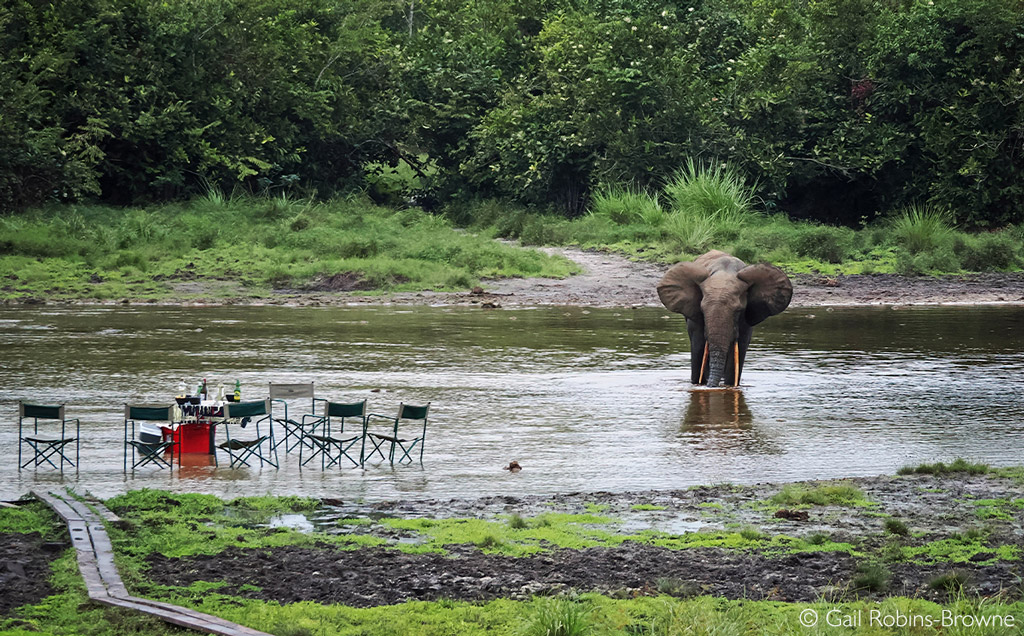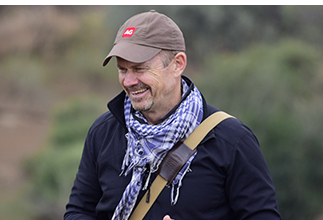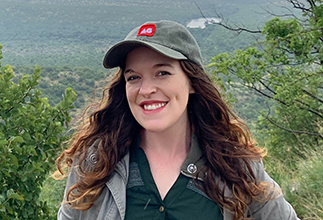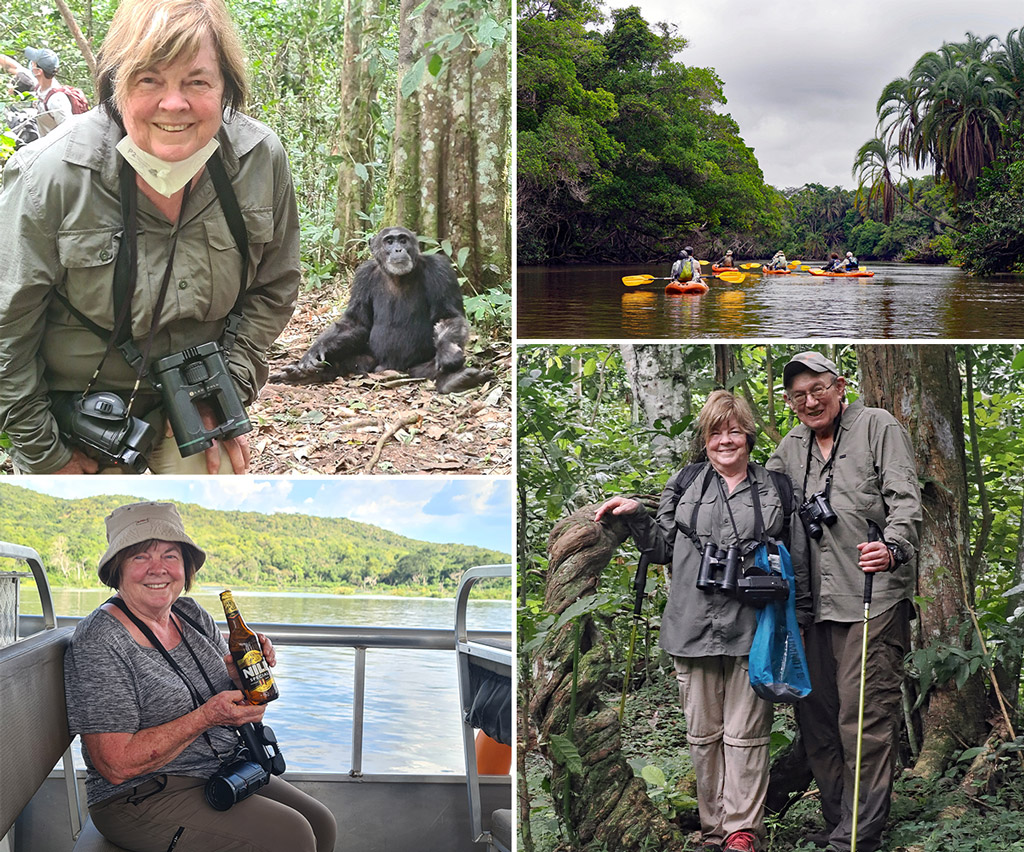
This is a copy of our weekly email newsletter. Subscribe here to receive the newsletter.
Hybrid elephants + Lake Manyara + prime-season Bots special

Last night, a lion roared closer to our home than usual – the husky groan reverberating through the thin night air. Lizz and I wondered if this individual had breached our wildlife estate fence and entered from the neighbouring Greater Kruger. We always keep close tabs on our dogs at night because of neighbourhood leopards, so after a brief moment of anxiety (prey species instinct?), we settled back to enjoy the moment.
We live in a brick house in a well-managed estate, so lions are a welcome presence – entertainment, if you will. Many of Africa’s rural villagers are not so fortunate. They have basic accommodations made of mud, sticks and grass, and their livestock spend the nights crowded into makeshift kraals – scant protection against a pride of lions. For them, lions represent a significant threat to lives and livelihoods. No wonder, then, that human-wildlife conflict is the biggest threat to lion populations. There used to be wild lions across Europe, but they disappeared as the human population exploded. Africa’s human population, too, is expanding. And yet Africa still has wild, free-roaming lion populations – a testament to our rural people.
I cannot stress enough the importance of wild, free-roaming lions for Africa’s ecosystems. And for her tourism industry – a vital source of empowerment, jobs and upskilling for local people. To learn more, please visit our website, search for ‘lions’, and enjoy years of science-based reporting.
Better still, help researchers save wild, free-roaming lions. Every amount helps – it really does. THANK YOU
Keep the passion

Simon Espley – CEO, Africa Geographic
From our Editor – Taryn van Jaarsveld

Did you know that scientists have just discovered a new species of pangolin? The extraordinary tale of its discovery speaks to the sorry state of affairs around these mammals: the new species was identified when analysing pangolin scales confiscated from the illegal trade. The investigation of these scales revealed genetic markers not seen in any known species – this undiscovered pangolin had fallen into the hands of poachers.
With only eight previously known species of pangolin (four in Africa, and four in Asia), the addition of a ninth species – named Manis mysteria – expands our knowledge of their diversity and evolutionary history. Conservationists can now focus on protecting this newly identified species, working to tackle the supply and demand of the pangolin trade and ensuring the survival of pangolins.
In our first story below, we continue our look into interesting species, with a study focusing on identifying hybrid elephants. Plus, you can read all about Lake Manyara National Park, the perfect base from which to launch your Tanzania safari.

Story 1
https://africageographic.com/stories/the-hybrid-elephant-of-kibale/
HYBRID ELEPHANTS
A study from Kibale investigates how to distinguish between forest/savannah elephant hybrids & different elephant species
Story 2
https://africageographic.com/stories/lake-manyara-national-park/
LAKE MANYARA
Lake Manyara, home to millions of migratory flamingos & high elephant densities, is the perfect base from which to start your Tanzanian safari
 TRAVEL DESK UPDATES:
TRAVEL DESK UPDATES:
Fancy a mobile safari in Botswana? Book now and you’ll save big time. Or plan that incredible family holiday to Maasai Mara, and kids will stay free! Read on, and reach out to our travel team now!
EARLY-BIRD SPECIAL – Botswana classic: fully catered mobile safari – $5,990 pp (save 10%)
Explore all of northern Botswana during prime season on a fully catered mobile safari. Beginning in Kasane and ending in Maun, and led by experienced guides, you’ll track big cats and wild dogs, and meander along the Chobe River. Book this authentic Botswana safari experience today and don’t miss out on this early-bird special, high-season rate of US$5,990pp, valid from 7–17 July 2024.
Kid’s stay free at Angama Mara, Maasai Mara National Reserve, Kenya
Stay on the edge of the Great Rift Valley and experience heart-stopping wildlife scenes year-round. Two children under the age of 12 stay free between 5 January – 31 May, and 1 October – 22 December 2024.
Angama Mara is a remarkable safari lodge overlooking Kenya’s Maasai Mara – offering a thrilling experience for the whole family.

Mega four-country safari
Our safari client, Gail Robins-Browne, and company, recently returned from a mega-safari (38 days) to Congo-Brazzaville, Rwanda, Uganda and Kenya. Gail enjoyed a boat trip on the Nile River, breakfast on the Mara River, kayaking and spotting forest elephants in Odzala-Kokoua National Park, and walking in Laikipia. Here is what Gail had to say about her experience:
“The itinerary planned was complex as it included Congo-Brazzaville, Uganda and Kenya. Nevertheless, the resulting trip was excellent. Christian (AG safari expert) was very responsive to all our queries. We had many amazing experiences, excellent guides and all camp accommodations – while varied – were very satisfactory!”
Want to experience a mega-safari like Gail’s? Come travel with us and let’s start planning!

 WATCH: The Kwakuchinja Wildlife Corridor allows thousands of animals to migrate between two national parks: Lake Manyara and Tarangire. The Chem Chem Association is working to stem the tide of poaching and human-wildlife conflict along this ancient corridor. Here’s how (7:45). Click here to watch
WATCH: The Kwakuchinja Wildlife Corridor allows thousands of animals to migrate between two national parks: Lake Manyara and Tarangire. The Chem Chem Association is working to stem the tide of poaching and human-wildlife conflict along this ancient corridor. Here’s how (7:45). Click here to watch
To comment on this story: Login (or sign up) to our app here - it's a troll-free safe place 🙂.![]()






